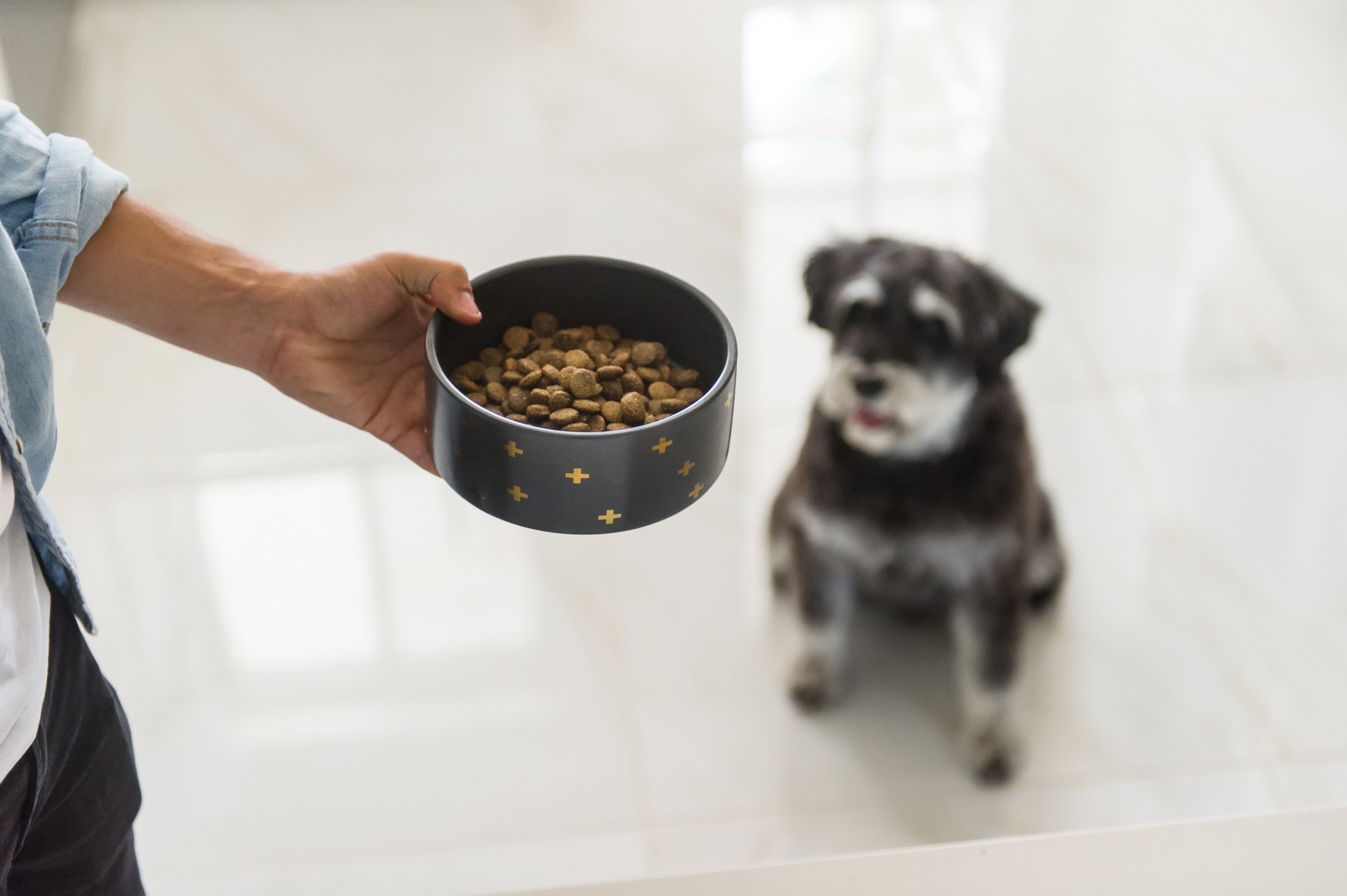Dogs can develop food allergies in the same way as humans. It is important to note that food allergies are not the same as food intolerances. In food intolerances, dogs will have difficulty digesting certain foods, such as milk.
What are the most common food allergies, and how do they manifest? What to feed a dog with a food allergy? We will answer all these questions in this article.
What is a food allergy?
An allergy is when the immune system triggers an abnormal reaction that is disproportionate to the presence of a substance that is not normally harmful to the body. This substance is called an allergen.
Food allergy is a reaction of the body to a food or ingredient that it considers harmful. Not all dogs develop food allergies, only those sensitive to certain ingredients.
Whenever a dog's diet contains allergens, the pet's antibodies will react with them, and specific symptoms will occur. Virtually any ingredient in your dog's diet can cause an allergic reaction if it is sensitive.
How do food allergies develop?
The mechanism of action in food allergies is quite complicated, but it is important to note that proteins are almost always "to blame". Proteins of different origins come from meat, eggs, vegetables, cereals, etc. Dyes, synthetic preservatives, and artificial flavors are also on the list of potentially allergenic ingredients.
Once developed, these allergies can occur throughout the dog's life, and the solution is to eliminate the "guilty" ingredient from its diet.
Studies show that about 2% of dogs worldwide suffer from food allergies.[1] The most common food allergies in dogs are due to:[2]
- - Beef (34%)
- - Dairy (17%)
- - Chicken meat (15%)
- - Wheat (13%)
- - Soy (6%)
- - Lamb (5%)
- - Corn (4%)
- - Eggs (4%)
- - Pork (2%)
- - Rice (2%)
- - Fish (2%)
Food allergies in dogs can also occur after your dog has eaten food with rabbit meat, kidney beans, barley, tomatoes, or chocolate. Rabbit and fish allergies are very rare in dogs.
Certain factors can also increase their risk, making dogs more prone to developing them, such as:
- - Inflammation
- - Infections
- - The use of medications
These factors can affect the digestive tract and increase the possibility of food hypersensitivity. For example, antibiotic treatment during the growth period has a special impact on sensitizing the body and triggering allergies later. Antibiotics actually kill the good intestinal flora, which is the puppy's largest immune organ.
In addition, sensitivity to certain foods is more common in young dogs, which have more severe allergic reactions.
There are also some breeds that are more prone to developing food allergies, such as the West Highland white terrier, Cocker Spaniel, or Irish setter.
Why is the chicken, beef, or pork diet bad for dogs?
Chicken, beef, and pork are among the most common ingredients in dog food that can cause food allergies. If your dog is allergic to one of them, its body considers the meat a physical threat and will react accordingly.
When the dog's body has its first encounter with the allergen, its immune system produces specific immunoglobulin E (IgE) antibodies to fight the "threat". These antibodies attach to the body's immune cells. Every time your dog eats food with these types of meat, the allergen binds to IgE antibodies and causes cells to release histamine and other chemicals to try to protect its body. Depending on the tissue in which these antibodies are released, the chemicals will determine your dog's symptoms.
What are the symptoms of food allergy in dogs?
Food allergies do not always develop with violent symptoms, and not all of these signs can be observed at the same time.
Among the most common symptoms of food allergy in dogs are:
- - Excessive scratching.
- - Rubbing their face against surfaces or objects. Sometimes dogs rub their entire body to calm the itchiness.
- - Excessive licking or grooming, especially between the toes. In severe situations, the dog can self-mutilate. This symptom is easy to notice because, due to humidity, the fur on the paws acquires a reddish hue.
- - Heavy tearing with red eyes. Due to excessive tear secretion, tears run down the face and cause those easily noticeable reddish marks, especially in dogs with white fur.
- - Chronic inflammation of the ear. Chronic otitis is the most common sign of skin infections. In half of the allergic dogs, recurrent otitis is the only obvious sign.
- - Gastrointestinal signs - diarrhea, gas, and vomiting.
- - Respiratory signs - sneezing, profuse nasal discharge, and shortness of breath.
- - Hair loss and skin lesions. Allergic dermatitis is the third leading cause of skin disease in all dermatitis.
- - Redness of the perianal area and persistent scratching at this level.

How long does it take for a food allergy to occur?
In order for a dog to have an allergic reaction to a particular food or ingredient, it must consume that food for a certain period of time. During this period, the body is practically sensitized. In some cases, the manifestations may appear after a few years.
Due to this variable time, many dog owners refuse to believe that their usual diet is harmful to their beloved pets.
How to Feed Your Dog With food allergies
Food allergies can last a lifetime. The main purpose of their management is to find and avoid the triggering ingredient. If your dog suffers from food allergies, it is very important to feed it a sustainable and hypoallergenic diet instead of a conventional one.
If your dog has an allergic reaction to a certain type of meat, you may want to try a diet with a new source of protein, such as insects or Asian carp, instead of a traditional meat diet.
Wilder Harrier can offer your pet such diets. You can try Farmed Insects Recipe that contains protein-rich Black Soldier Flies (BSF) or Sustainable Fish Recipe, which is made from Asian carp and is high in omega 3.
These two products are 100% natural, contain a single protein, and have all the nutrients your allergic dog needs.
If you want to try them before purchasing these products you can try our hypoallergenic dog food samples for free.
About The Writer:

Dr. Iulia Mihai is an experienced veterinarian, researcher, and medicine. She did her Bachelor's in veterinary medicine followed by a Doctor of Philosophy (PhD), Veterinary Medicine, and has over 10 years of experience in the field, she knows her way around animals. In addition to working with animals at a vet clinic, she also helps the team at Wilder Harrier help dog parents on topics such as health, allergies, diet, and care for pets.




